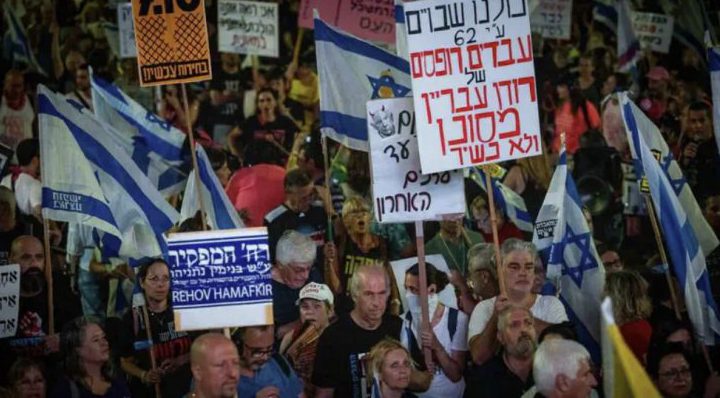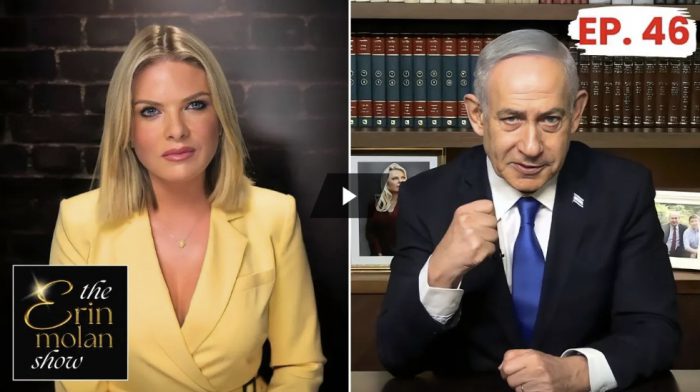An explosive chronicle argues Israel’s Left waged a decades-long campaign to delegitimize Netanyahu and the nationalist camp—culminating in court wars, mass protests, and a showdown over judicial power.
When Likud eked out victory in 1996, the Israeli Left didn’t just lose an election—it found a lifelong enemy. Benjamin Netanyahu, a native-born Israeli with American polish, elite IDF credentials, and telegenic confidence, had the profile the Left usually celebrates—except for his lineage and convictions. He planted himself firmly in the national camp.
The reaction was immediate. Stunned by Netanyahu’s razor-thin win over Shimon Peres, left-leaning elites launched a delegitimization drive. In 1997, dozens of Hebrew University professors petitioned to keep the prime minister off the Mount Scopus commencement stage—branding him divisive and dangerous for peace talks. It was a harbinger: the fight over Netanyahu would get toxic.
Fast-forward: the “Netanyahu story” becomes unprecedented. By 2025, he has served 18 years as prime minister—no term limits in Israel’s parliamentary system, coalitions as his chessboard, smaller parties his swing votes. The Left’s aversion hardened into open hatred.
Courtroom Warfare & the Reform Earthquake
The long war peaked in the courts. Around 2000, prosecutors filed cases of breach of trust, bribery, and fraud. The Right called them engineered—“lawfare,” not law. The Left cast Netanyahu as a cornered villain. Years of hearings morphed into legal hairsplitting and headline-grabbing trivia.
Then came the 2023 judicial reform blitz. Justice Minister Yariv Levin proposed to overhaul a system conservatives saw as captured: change Supreme Court appointments, curb the Court’s power to void policy and legislation, and rein in the Attorney General’s ability to freeze elected government action. Voters chose a Knesset; the Knesset backed a government; then—critics charged—the Court gagged it. The reform fight detonated Israeli society.
The constitutional brinkmanship spiked again in March 2025. After October 7 exposed catastrophic security failures, Netanyahu moved to dismiss Shabak chief Ronen Bar. The law, his allies argued, gave the PM clear authority. But legal heavyweights muscled in, questioned motives, and slowed the ax. Bar dug in. A judicial–security mutiny seemed to glimmer in broad daylight.
Selective Justice?
For years, the Right accused the system of partiality and selective prosecution—naming figures like Reuven Rivlin, Yehuda Neeman, Silvan Shalom, Rafael Eitan, Avigdor Liberman and others who were tarnished, investigated, and ultimately not convicted. In Netanyahu’s own cases, confidants Shlomo Filber and Nir Hefetz described interrogations the Right calls abusive and anti-democratic.
They point to Ariel Sharon (2005) and the Gush Katif disengagement—“political extortion” that neutered investigations (the Greek island affair). They cite the non-probe of the NSO spyware scandal touching Left-aligned power players. When right-leaning governments tightened illegal immigration enforcement or sought to preserve Jewish-character communities, the Court said no. When Palestinian claims on land in Judea–Samaria were flimsy, the Court, they say, often said yes, ordering demolition in places like Ofra, Amona, Derech Ha-Avot.
At the heart of it all stands former Chief Justice Aharon Barak (1995–2006), architect of judicial activism and the doctrine that “everything is justiciable.” Barak blocked law professor Ruth Gavison—“she has an agenda,” he said (hers was anti-activism). Critics recall judges sneering at religious Zionists, and a judiciary that valorized an “enlightened camp.”
Political Power Without Elections
Since 2003, the Court overturned Knesset bans on certain Arab party candidates whose platforms rejected Israel as a Jewish state—a thunderclap to nationalists. In December 2024, the Court sided with a petition to ensure better food for nukhba terrorists—the October 7 butchers—reaffirming Barak’s logic even for sworn enemies of Israel. To the Right, it was masochism on the bench.
The Streets vs. the State
From January–October 2023, anti-reform protests morphed into a siege tactic: blocking Ben-Gurion Airport, orchestrating strikes, urging capital flight, and hounding ministers in public. Mobocracy masquerading as “saving democracy,” the Right charged. Sarah Netanyahu was besieged in a Tel Aviv salon; police had to extract her.
The most explosive flashpoint? Calls for IDF refusal to serve. Ex-security titans (Ami Ayalon, Yoram Cohen, Nadav Argaman) and retired generals joined the roar. Ehud Barak urged encircling the Knesset. The Brothers in Arms outfit allegedly barricaded the Kohelet Forum—a private think tank that backed reform. Indictments? Zero, says the Right.
The fight went global. Diaspora protests shadowed Netanyahu; activists appealed to President Biden to “save Israeli democracy.” Congressional probes later revealed, the narrative claims, U.S. funding greased the protest ecosystem.
October 7, Hostages & the Next War on Bibi
Hamas’s October 7, 2023 massacre—1,200 murdered—halted the reform brawl but birthed a new cudgel: hostages. As of June 2025, 148 returned alive, 56 bodies recovered. Families split: some pressed a deal at any price; others backed the war aim—destroy Hamas and secure the border. Protest leaders accused Netanyahu of “killing the hostages.” The Right countered: capitulation would doom Israel’s deterrence and invite regional predators to pounce.
Deep Roots: The Left vs. Revisionism
The rift predates the state. From Haganah clashes with Betar (1933) to the Altalena affair (1948), from smearing Jabotinsky’s heirs to informing on Irgun to the British, the Right says history proves a pattern: Labor/Mapai suppressed rivals to cement hegemony.
Everything changed in 1977. Menachem Begin’s Likud shattered 29 years of Labor rule—and won again in 1981. The Left never recovered. Yitzhak Ben-Aharon sneered that he wouldn’t “respect” such a public choice. The era of Bibi Derangement Syndrome began in earnest.
The “Deep State” Thesis
Locked out of the ballot-box majority, the Left, this account argues, entrenched itself in media, academia, culture, bureaucracy, prosecution, the courts, and top military echelons. Dissenters—artists like Ephraim Kishon, Naomi Shemer, Meir Ariel, Ariel Zilber; hard-charging generals like Effi Eitam, Ofer Winter, Imad Fares, Chico Tamir—paid career prices. Apostates from Likud (Dan Meridor, Tzipi Livni, Meir Sheetrit, Limor Livnat) found shelter under elite wings; Ariel Sharon’s 2005 Gaza withdrawal is framed as the most cynical conversion of all.
Strategic Bankruptcy & Self-Denial
To critics, today’s Left is ideologically drained, drifting from Zionist ethos and flirting with undoing core laws like the Law of Return. The record—Oslo (1993) recognition of the PLO, Lebanon pullout (2000), Gaza disengagement (2005)—reads, in this telling, as a trilogy of strategic misreads that emboldened enemies and led to bloodshed.
The conclusion is stark: whether the Gaza war ends tomorrow or drags on, the campaign to oust Netanyahu will mutate and persist. New scandals will be minted; new barricades will be built. The final chapter? “Only Heaven knows.”
Editor’s note: This is an opinion-forward analysis reflecting a nationalist perspective on Israel’s political struggle since 1996. It emphasizes claims made by Netanyahu’s supporters regarding judicial activism, protest tactics, and institutional bias.
Dr. Mordechai Nisanis a retired lecturer at the Hebrew University of Jerusalem. He also taught at Bar-Ilan University, the Open University, and the pre-army Lachish academy at Beit Guvrin. Among his books: Minorities in the Middle East, Toward a New Israel, The Crack-up of the Israeli Left, The Conscience of Lebanon, and Identity and Civilization.





